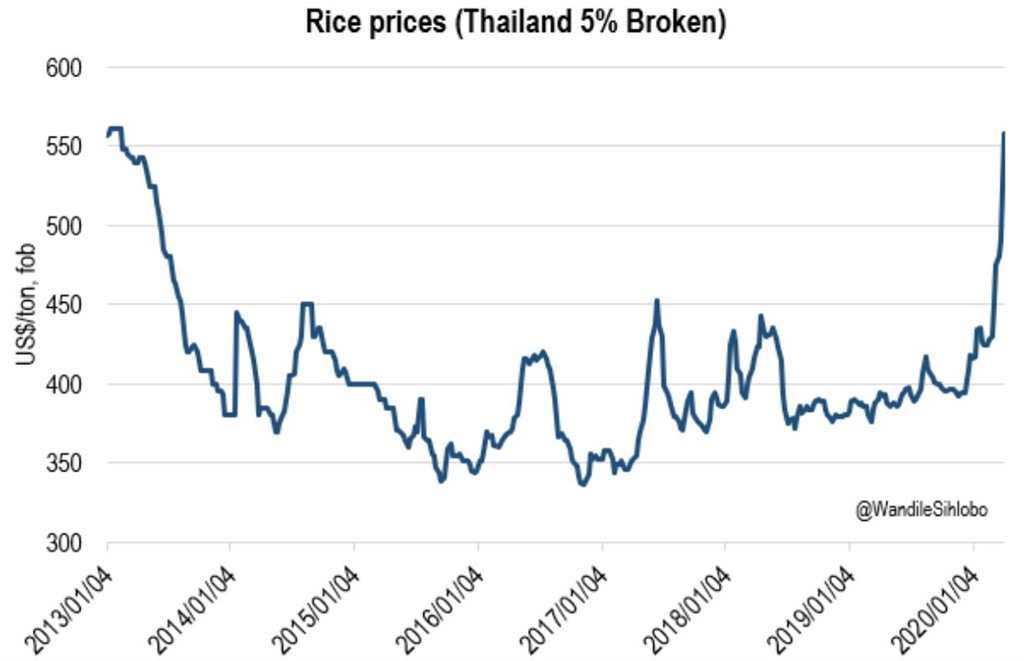South Africa may run out of Energade bottle tops – and rice, pasta are also an issue
Tiger Brands is struggling to secure plastic bottle tops for its Energade bottles – and is also battling to get enough pasta and rice for panic-buying South Africa as international supplies are disrupted.
Noel Doyle, CEO of Tiger Brands, told radio presenter Bruce Whitfield on The Money Show that the group – which owns brands like Jungle, Koo, Beacon and Ace – is not experiencing shortages, but that there are “challenges” in some categories.
This includes securing the trademark yellow bottle tops for Energade. The product was the first sports drink launched in South Africa, back in 1993.
Due to freight problems from international suppliers, the group is struggling to source the bottle tops.
But the biggest challenges are in securing rice and pasta, which have seen massive panic buying in recent weeks.
Doyle said that in the 15 days up to Monday, Tiger Brands’ pasta sales were up 67%. The company owns the Fatti’s & Moni’s brand. Some of its pasta is imported, which has been impacted by shutdowns in other countries. It has secured some supplies from Namibia and its local plant is now working “flat out” to supply pasta to the market.
Rice is trickier. While a large consumer of rice, South Africa does not produce its own and is almost totally dependent on imports.
Some rice exporters - particularly Vietnam and Cambodia - have banned shipments during the coronavirus crisis, to protect domestic supplies. Exports from India have been disrupted due to coronavirus lockdown measures.
South Africa imports roughly 70% of its annual rice consumption from Thailand and about 20% from India. Neither has placed a ban on exports, says Wandile Sihlobo, chief economist at the Agricultural Business Chamber.
But around the world, there has been a rush to buy rice from these countries and shortages have pushed prices to a seven-year high. The impact on South African rice buyers will be worsened by the sharp fall in the rand over recent weeks.

Doyle says Tiger Brands, which owns Tastic, is “literally hand to mouth” when it comes to rice. He said supplies have been boosted by a shipment that docked last week.
He added that Tiger Brands has seen increased productivity from its staff, with attendance of “virtually 100%” at all its manufacturing and distribution sites despite the coronavirus crisis. Workers are being financially incentivised to deliver increased output.
News Category
- International retailers
- On the move
- Awards and achievements
- Legislation
- Wine and liquor
- Africa
- Going green
- Supplier news
- Research tools
- Retailer trading results
- Supply chain
- Innovation and technology
- Economic factors
- Crime and security
- Store Openings
- Marketing and Promotions
- Social Responsibility
- Brand Press Office
Related Articles

Warning of Eskom collapse

Knorr recalls brown onion gravy sachets

Eskom CEO shares good news about load-shedding

Tax warning for South African businesses


